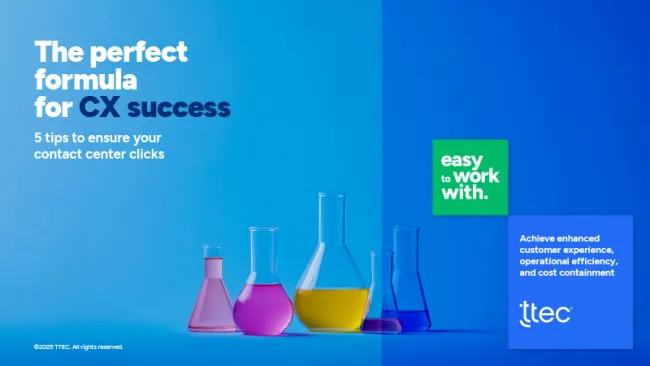No gamer wants to contact customer service to resolve a problem. They often don’t have access to the game that they’ve already paid for, and many feel like they should be able to solve any issues that arise on their own. By the time they contact your support team, they’re already aggravated. AI can help make their experience less frustrating if implemented properly.
But gaming brands should resist the temptation to suddenly layer AI onto every part of the customer journey. AI is a hot topic, and there are many benefits it can bring to customer experience (CX) – but if you apply it haphazardly and without a clear strategy, it could just make things worse.
Be smart about your AI strategy
It’s important to be thoughtful and strategic when deciding where and how to integrate AI into your customer support. This goes for any industry but is especially true in gaming.
Why? Because your customers – gamers – are much more tech savvy than the average consumer. Some build their own computers and many are programmers. They know how technology is supposed to work and they’re more likely than most to get frustrated by a clunky AI experience. To them, that can be as aggravating as having to wait on hold to reach a live associate.
When gamers have to contact your customer support team for any reason, their main goal is getting inquiries resolved as fast as they can so they can get back to gaming. They favor self-service options whenever possible but if you offer an unproductive or complicated chatbot experience, for instance, they’ll only get more frustrated.
Even the best AI technology won’t help a broken customer journey, so it’s really important to ensure your customers (and your associates) have quick, easy access to the answers and information they need when they need them. Let common pain points in the customer journey guide you as you decide where AI could help.
AI can help make your back-office operations, self-service offerings, and workforce management more efficient. It can also help you onboard and train associates more quickly. All of this can improve experiences for customers and associates alike, but only if it’s done in a thoughtful way that makes sense for your business. If it’s adopted too hastily, it could backfire and turn gamers off your brand.
Make the most of your data with AI
One area where AI can play a significant role for gaming companies is helping you make sense of all the data you collect.
You’ve got so much information about your customers: when they play, how much time and money they spend in games, how well they do, their purchase histories, and more. AI can structure that data, comb it for trends and patterns, and give you valuable insights to help improve your player experience and turn into real revenue by keeping customers happy and in-game.
When it comes to data annotation, you don’t just need the right technology; it’s key to keep humans in the loop as well. Your AI is only as strong as the data feeding it, so invest in data annotators and rethink the way you’re hiring them.
The old way of hiring, which traditionally involves crowdsourcing and paying annotators per annotation, only incentivizes them to work quickly, which can hurt the quality of your annotations. You’ll achieve better results when you invest in high-quality annotators.
Add AI to CX the right way
With the constant evolution of AI tools, and the growing impact they can have on CX, it can be difficult to know how best to embrace AI at your company. And the stakes are high, since just one frustrating experience could be enough to turn gamers off a game.
Working a gaming CX partner that has AI expertise is a great way to tap into the people, tools, and strategy you need to harness AI’s full potential. When done well, AI can enable a smoother experience for your gamers and employees alike.














